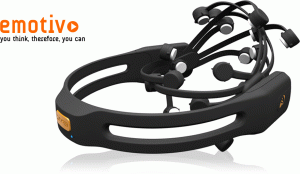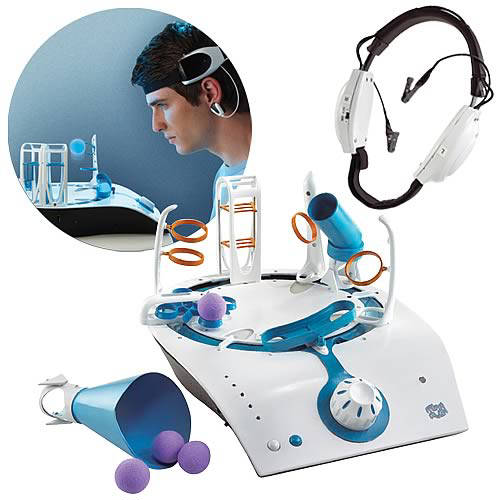Use Off Prescription Drugs to Enhance Cognition?
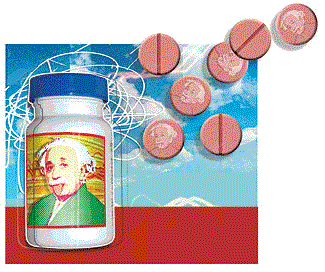 Drugs designed for Alzheimer’s disease, ADHD, narcolepsy and other neurological disorders are finding new off-prescription use as cognitive enhancers. Students, professionals and many other citizen have reported using prescription-only drugs such as Aderaal (a form of ritlan for ADHD) and Modafinil (a stimulant used to treate narcolepsy) to boost mental performance. Typical non-medical uses of these “smart drugs” include efforts to improve concentration, enhance memory and create mental energy.
Drugs designed for Alzheimer’s disease, ADHD, narcolepsy and other neurological disorders are finding new off-prescription use as cognitive enhancers. Students, professionals and many other citizen have reported using prescription-only drugs such as Aderaal (a form of ritlan for ADHD) and Modafinil (a stimulant used to treate narcolepsy) to boost mental performance. Typical non-medical uses of these “smart drugs” include efforts to improve concentration, enhance memory and create mental energy.
Using smart drugs without a prescription is illegal but they are easily available on the internet and from street sources. As reported in the commentary, Toward responsible use of cognitive-enhancing drugs by the healthy, in the prestigious scientific journal Nature:
“Today, on university campuses around the world, students are striking deals to buy and sell prescription drugs such as Adderall and Ritalin — not to get high, but to get higher grades, to provide an edge over their fellow students or to increase in some measurable way their capacity for learning.”
And it is not just students but professors, physicians, lawyers, engineers and many other professionals.
Not surprising there is little or no scientific evidence that these drugs work to enhance cognitive performance of healthy people. However, the subjective effect of increased mental energy seems unmistakable.
With many people experimenting with smart drugs, and a growing number of calls for studying their use to achieve peak cognitive performance, they will be a frequent topic in the Next Brain Blog.
Please leave a comment if you have experience in using smart drugs that you want to share with other readers.
Source: Image of Smart Drugs
Categories: College Student, Lifestyle, Memory and Learning, Mental Focus, Professional Tags: mental energy, smart drugs
Using Neurofeedback to Train Your Mind
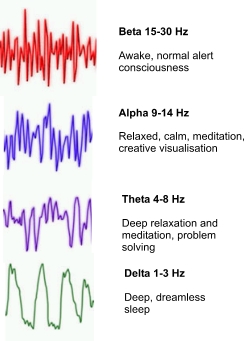 Neurofeedback training devices translate brainwaves into an external signal such sounds, graphs on a computer screen, movement of your computer’s cursor, action in a video game and even the motion of remote controlled toys. Being able to hear or see your brainwaves in this way provides essential feedback for learning how to control them to improve mental focus, modulate your mood and sharpen your thinking.
Neurofeedback training devices translate brainwaves into an external signal such sounds, graphs on a computer screen, movement of your computer’s cursor, action in a video game and even the motion of remote controlled toys. Being able to hear or see your brainwaves in this way provides essential feedback for learning how to control them to improve mental focus, modulate your mood and sharpen your thinking.
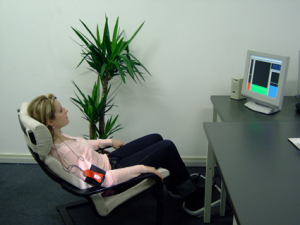 Neurofeedback has been proven to work in a clinical setting. You can go to a therapist and in about 10 weeks achieve some real results. A typical setup is shown to the left.
Neurofeedback has been proven to work in a clinical setting. You can go to a therapist and in about 10 weeks achieve some real results. A typical setup is shown to the left.
Devices for use by consumers at home are starting to hit the market. There are general purpose brain computer interfaces (BCI) such as the EPOC headset from Emotiv. It sells for $300 and comes with some basic games.
The only other consumer-level BCI I am aware of is being sold by Neurosky. It is cheaper ($199) but it comes with a single sensor versus the 14 for EPOC. The Neurosky technology is being used to develop mind-controlled toys. Check out Mattel’s Mindflex below.
It is not clear if the at-home neuofeedback devices are producing results or if they even work well. Consumer reviews tend to be mixed. For example, Mindflex Game has 58 customer reviews on Amazon:
- 5 star (14)
- 4 star (18)
- 3 star (8)
- 2 star (6)
- 1 star (12)
No matter, as the technology improves there can be little doubt that neurofeedback devices will become a powerful force for improving our cognitive performance. Brain computer interfaces, mind controlled toys and video games as well as other consumer-level neurofeedback devices will be covered frequently in the Next Brain Blog.
I am very interested to hear from readers that use neurofeedback in a clinical setting or at home. Please leave a comment and share your experiences.
Source: Image of Brainwaves and clinical use of Neurofeedback.
Categories: Executive Function, Mental Focus, Perception, Software, Training Tags: BCI, brain training, Brainwave Entrainment, games, neurofeeback
Does Asking Why Make You Smarter?
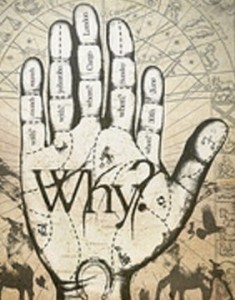 Perhaps not but asking why five times in a row is a simple and proven technique for getting to the root cause of a problem or issue. And getting to the root cause greatly improves your odds of finding good solutions.
Perhaps not but asking why five times in a row is a simple and proven technique for getting to the root cause of a problem or issue. And getting to the root cause greatly improves your odds of finding good solutions.
The technique known as the five-whys was originally developed by Sakichi Toyoda, often called the father of the industrial revolution in Japan. Let’s assume for example that a customer order is not shipped from the dock on time. Here is how the technique works:
- Why1: Why did the shipment not leave the dock on time?
- The order was not completed before the last truck left
- Why2: What the order not complete?
- The automated assembler on line 3 broke down
- Why3: Why did the automated assembler break down?
- We failed to complete the maintenance schedule and the the control froze
- Why4: Why did we fail to complete maintenance?
- Frank, a new employee forgot to do it
- Why5: Why did Frank forget to do it?
- It was not included in his new employee training
Although a bit simplistic it shows the power of the five-whys technique for driving thinking to the root cause. A problem with a customer order was ultimately caused by a fault in new employee training. Learning such simple techniques is a powerful way to improve cognition and so they will be a frequent topic on the Next Brain Blog.
For a more detailed overview, including some of the short comings of the technique check out How to use the Five WHY approach.
Please post a comment and share your success with the five-whys or related problem solving techniques.
Source: Image of the Hand.
Categories: Problem Solving, Training Tags: quality technique
Doodle at the Right Time to Boost Learning by 29%
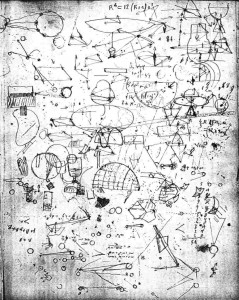 When faced with a long or boring lecture, phone call or other interaction doodling can improve your recall of key information by 29%. This was the finding of a randomized controlled study recently reported in Applied Cognitive Psychology.
When faced with a long or boring lecture, phone call or other interaction doodling can improve your recall of key information by 29%. This was the finding of a randomized controlled study recently reported in Applied Cognitive Psychology.
This is a strange finding because normally a second task would distract us and lower performance. Jackie Andrade, the University of Plymouth professor that did the research believes that the doodling may work because it keeps us from engaging in daydreaming and losing focus completely.
Doodling in the face of boredom then becomes a way to maintain not disrupt mental focus and should result in improved recall and learning.
Although simple, any technique for maintaining mental focus in a difficult task environment (boring, interruption prone, noisy, etc.) is key to improving cognitive performance and will be covered on the Next Brain Blog.
I am interested in hearing from readers that use doodling or other secondary techniques to improve mental focus.
Source: A doodle from Henri Poincaré’s Student Notebook
Categories: Memory and Learning, Mental Focus, Other Tags: doodling
Want to Dramatically Improve Self-Control?
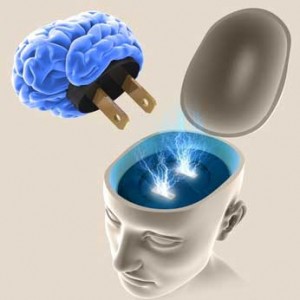 Then learn to manage your mental energy!
Then learn to manage your mental energy!
Science has made considerable inroads over the last few years defining, measuring and understanding the role mental energy plays in cognitive performance. Mental energy is defined as the combination of the ability to do mental work, the motivation for doing that work and your subjective feeling of fatigue. Key findings about mental energy include:
- We only have so much to use – it is a limited resource
- Exercising self-control or regulating our thoughts, emotions and behavioral responses burns considerable mental energy – much more than other cognitive processes such as learning and decision-making
- Running low on mental energy means loss of impulse control
- We can do specific things to replenish our supply of mental energy
Given the central role that mental energy (and its management) plays in cognitive performance it will be a frequent topic on the Next Brain blog.
Techniques for getting started in managing your mental energy include:
- Measuring your level of self-control and other cognitive tendencies that make extensive use of mental energy
- Journaling to understand how you wisely (or not) you use mental energy throughout the day
- Planning or budgeting your mental energy so you don’t set goals or engage in activities that result in sever depletion
- Developing habits that naturally restore your supply
Little things make a big difference when it comes to managing mental energy.
Categories: Executive Function, Lifestyle, Manage Emotions, Mental Focus, Training Tags: mental energy
Integrative Body-Mind Training Improves Brain Functions in Just Five Days!
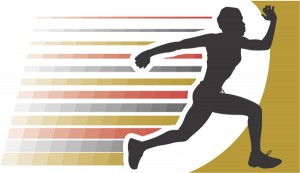 There is growing evidence that a fast-track approach to mediation may in fact produce results in as little as five days. This would be a breakthrough as using mindfulness or mediative techniques to improve your cognitive functioning normally takes months or years.
There is growing evidence that a fast-track approach to mediation may in fact produce results in as little as five days. This would be a breakthrough as using mindfulness or mediative techniques to improve your cognitive functioning normally takes months or years.
The technique is called integrative body-mind training (IBMT) and requires 20 minutes per day for five days. Subjects with no previous training in mediation techniques showed significant improvements in mental focus, mood and stress.
The process involves using a number of techniques together under the guidance of a coach. The seminal article on IBMT, Short-Term Medication Training Improves Attention and Self-Regulation, describes it this way:
“Training in this method is followed by 5 days of group practice, during which a coach answers questions and observes facial and body cues to identify those people who are struggling with the method. The trainees concentrate on achieving a balanced state of mind while being guided by the coach and the compact disc that teaches them to relax, adjust their breathing, and use mental imagery.”
A more detailed description of how this works over a five day period can be found in this Introduction to IBMT written by Dr. Yi-Yuan Tang a pioneer in the field.
I am interested to hear from readers that can recommend a coach, suggest resources or share experiences about IBMT. I’d like to try it and write additional posts for the next Brain Blog.
Source: Image of running man.
Categories: Ancient Ways, Executive Function, Memory and Learning, Mental Focus, Music and Audio, Training Tags: meditation, mindfulness
DASH Diet + Aerobic Exercise = 30% Improvement in Brain Function
 According to a news release by the American Heart Association, a diet developed to improve blood pressure combined with aerobic exercise over a four month period appears to improve the mental functioning of older overweight adults. Researchers claim mental functioning improved by 30%. Quoting the news release:
According to a news release by the American Heart Association, a diet developed to improve blood pressure combined with aerobic exercise over a four month period appears to improve the mental functioning of older overweight adults. Researchers claim mental functioning improved by 30%. Quoting the news release:
“Researchers assessed mental functioning with a battery of neuropsychological tests, including Executive Function-Memory-Learning and Psychomotor Speed. These tests measure cognitive skills involving manipulation of ideas and concepts and planning ahead. The tests were given before and after the four-month treatment program.”
The diet plan is called DASH (dietary approaches to stop hypertension) and involves:
- Eating more fruits, vegetables, whole grains, fish, poultry, nuts and foods rich in magnesium, potassium, and calcium
- Cutting back on red meats high total-fat foods and sweets
If you want to give it a try there are specific guidelines, recommendations and even food plans on The Dash Diet Plan Eating site.
The aerobic exercises were basic but supervised and took place for 30 minutes three times per week.
It is important to note that you have to do both the diet and exercise to get the improvement in mental functioning. Control groups that did one or the other, or nothing showed no improvement in mental functioning. These type of combination effects (doing two or more interventions to get a boost in cognitive performance) are common and will be frequently covered on the Next Brain Blog.
Source: Exercise and Diet Image
Categories: Cognitive Decline, Diet, Executive Function, Lifestyle, Memory and Learning, Older Adult, Other, Problem Solving Tags: exercise, fruit
Vitamins for Cognitive Performance
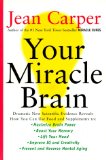 I am often asked if there are specific vitamins that are proven to enhance brain and cognitive function. The answer is yes but the level of improvement is not always clear. Vitamins that are generally called out for their brain boosting effects include:
I am often asked if there are specific vitamins that are proven to enhance brain and cognitive function. The answer is yes but the level of improvement is not always clear. Vitamins that are generally called out for their brain boosting effects include:
- B vitamins – memory and brain development
- Antioxidants or vitamins E, C and A (beta carotene) – overall functioning
- Multivitamins – overall functioning
Of course it is not just vitamins that help our brain function well but other supplements (e.g. minerals and fatty acids) and the foods we eat. Diet and supplements will be a frequent topic on the Next Brain Blog.
For a comprehensive overview of how supplements and diet impact brain function I suggest you read (or listen to) Jean Carper’s book, Your Miracle Brain: Dramatic New Scientific Evidence Reveals How You Can Use Food and Supplements To: Maximize Brain Power, Boost Your Memory, Lift Your Mood, Improve IQ and Creativity, Prevent and Reverse Mental Aging.
If you take supplements or have customized your diet to improve cognitive performance please leave a comment and share your results.
Categories: Books, Cognitive Decline, Diet, IQ and EQ, Memory and Learning, Mental Focus Tags: vitamins
Learn From Experience – Fast and Deep
How well we learn from experience determines how far we go in our careers and personal relationships. Experiential learning is so basic we take it for granted but it is a complex cognitive process that requires many different skills. Fortunately, we can get better at it, much better at it.
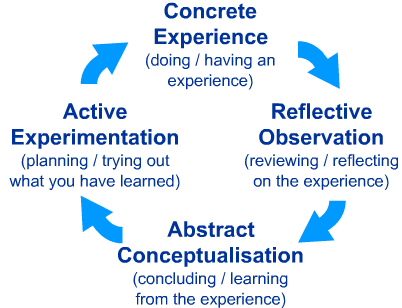 Learning from experience is a four-step process that repeats. The diagram to the right is based on David Kolb’s theory of experiential learning and illustrates the steps and some of the basic skills involved. What can we learn using this process? Nearly everything it turns out. How to get along with a difficult boss, how to make money on the internet, how to loose weight, how to be happy in retirement and any other worthwhile goal that involves trial and error.
Learning from experience is a four-step process that repeats. The diagram to the right is based on David Kolb’s theory of experiential learning and illustrates the steps and some of the basic skills involved. What can we learn using this process? Nearly everything it turns out. How to get along with a difficult boss, how to make money on the internet, how to loose weight, how to be happy in retirement and any other worthwhile goal that involves trial and error.
The key is try something (concrete experience), observe the effects (reflective observation), draw conclusions (abstract conceptualization), modify your approach (active experimentation) and try again (concrete experience). Often it takes many cycles or attempts to learn something from experience.
Learning from experience is hard to do well. Major challenges include:
- Lack of the skills needed to move through one of the key steps in the process
- Overemphasizing one or two of the key steps
- Giving up too soon or not completing enough cycles for deep learning
- Not moving through the necessary cycles fast enough or cost-effectively
- Not managing it as a process or just “letting it happen”.
Each of these challenges can be met but it takes considerable time and effort. Improving your capacity to learn from experience pays lifelong dividends but like improving critical reasoning or emotional intelligence, requires a considerable investment. Given this, it will be a frequent topic on the Next Brain blog.
A great way to get started is to begin to explicitly manage the process and to learn more about your particular approach to experiential learning.
You can start to manage your experiential learning process by journaling. Focus on a specific goal, something you are already in the process of trying to learn. Keep notes on what you are hypothesizing, testing, trying and observing as you move through the process. The simple act of recording the process in writing and diagrams automatically brings structure and insight. Sometimes just asking the question – What am I actively trying to learn from experience at work and home? – can produce improvements.
 You can use Kolb’s Learning Style Inventory to understand more about your approach, strengths and weakness across the four steps int the process. You answer 13 questions and need to do some simple math and graphing but it is a scientifically validated instrument. It tells you about your style and provides practical advice on how to improve. You can buy a packet of 10 assessments from the Hay Group for $125. A bit pricey but if you are working with a group that is interested in improving learning from experience it is well worth the money. Working in a small group will have many other advantages. I don’t think anyone sells a single copy of the Learning Style Inventory but I did find, Using Kolb’s Learning Style Inventory, at the University of Georgia. This is a 7MG PDF file with a scanned copy of an older version.
You can use Kolb’s Learning Style Inventory to understand more about your approach, strengths and weakness across the four steps int the process. You answer 13 questions and need to do some simple math and graphing but it is a scientifically validated instrument. It tells you about your style and provides practical advice on how to improve. You can buy a packet of 10 assessments from the Hay Group for $125. A bit pricey but if you are working with a group that is interested in improving learning from experience it is well worth the money. Working in a small group will have many other advantages. I don’t think anyone sells a single copy of the Learning Style Inventory but I did find, Using Kolb’s Learning Style Inventory, at the University of Georgia. This is a 7MG PDF file with a scanned copy of an older version.
If you try your hand at journaling, complete the Learning Style Inventory or have other insights into how to get starting in improving experiential learning, please post a comment.
Sources:
Image of learning from experience cycle
Image of Learning Style Inventory
Categories: Memory and Learning Tags: experiential learning, Learning Style Inventory
Grow Smarter While Having Fun
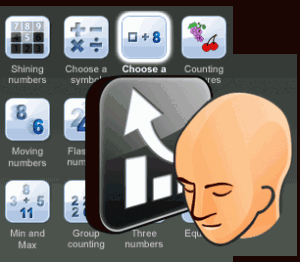 Brain games are all the rage. These are games you play for fun on your PC, game console or phone that also improve your cognitive functioning. There are dozens of traditional games and more recently scientifically-designed games that aim to improve memory, processing speed, visual perception, problem solving skill, mental focus and many other aspects of cognitive performance.
Brain games are all the rage. These are games you play for fun on your PC, game console or phone that also improve your cognitive functioning. There are dozens of traditional games and more recently scientifically-designed games that aim to improve memory, processing speed, visual perception, problem solving skill, mental focus and many other aspects of cognitive performance.
Do they work? Scientific American published an interesting article that took on that very question. What they found was many (50 or so) studies that show brain games can improve task performance but few if any that show that the effects translate into improvements in everyday cognitive activities. But they are optimistic:
One thing remains clear: there is no serious harm to brain training other than the effect on your wallet (and the risk of some egg on your face if your seven-year old can play them better). And evidence is accumulating that they not only improve the skills they are designed to help, but likely generalize to other cognitive abilities and have some long-lasting benefits.
Given this, games will be a frequent topic in the Next Brain Blog.
Another question to ask is are they fun? I’ve tried many of the scientifically designed brain games and find them boring after a couple of plays. Fortunately, some traditional games and puzzles also offer some cognitive performance boosts. For example, the popular math puzzle Sudoku is included in BrainAge, a brain training program pack with games that runs on a Nintendo DS handheld video game device.
The key is to find brain games that are truly fun for you and that have evidence supporting claims of cognitive improvement.
Here are some links to get your search started:
- Scientifically Designed Brain Games by Lumosity
- Top 50 Brain Teasers and Games by SharpBrains
- Top 10 Websites for Brain Training
Please post a comment on your favorite game that has brain boosting effects.
Source: Image of Resco Brain Games
Categories: Memory and Learning, Mental Focus, Perception, Problem Solving, Software Tags: brain training, games

